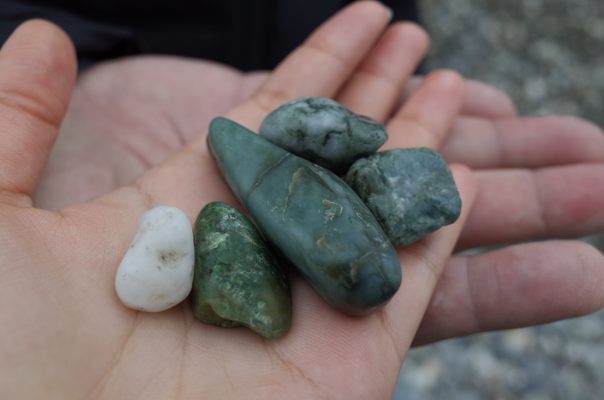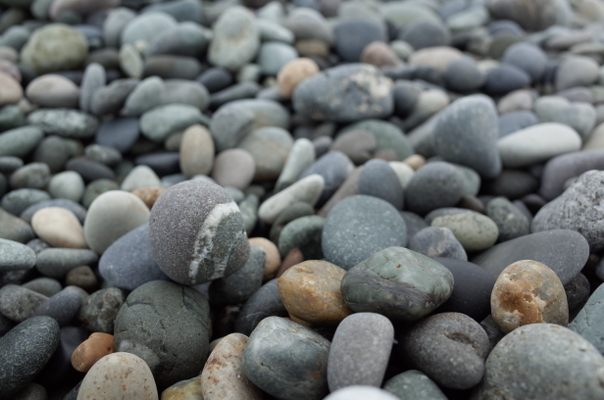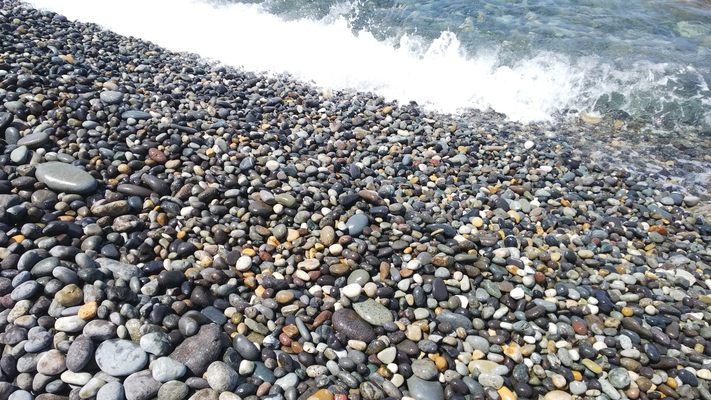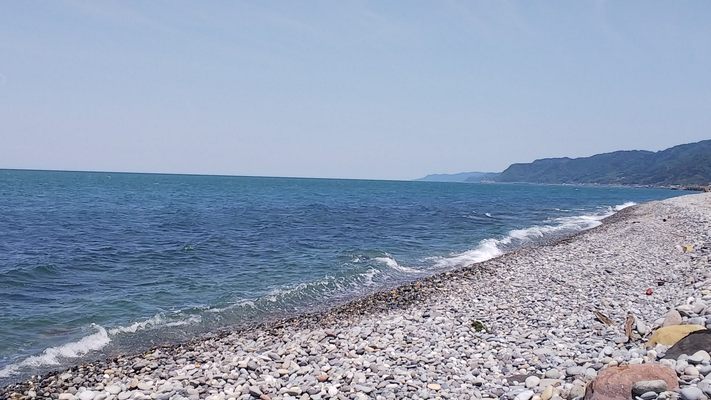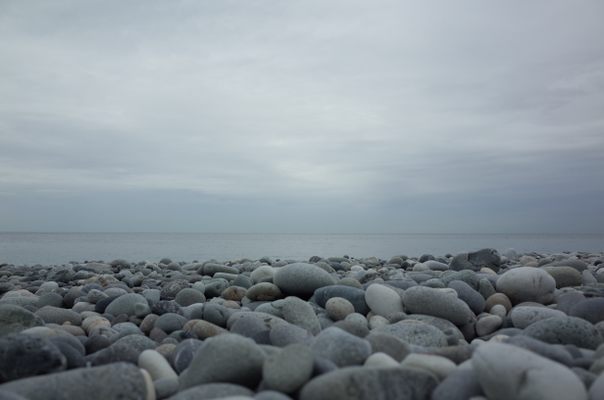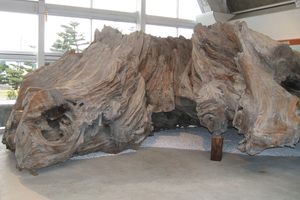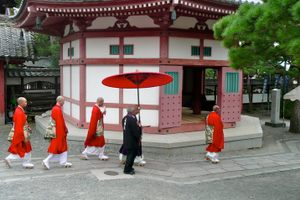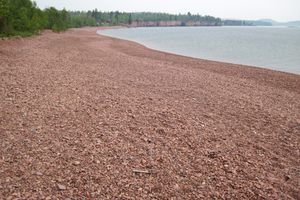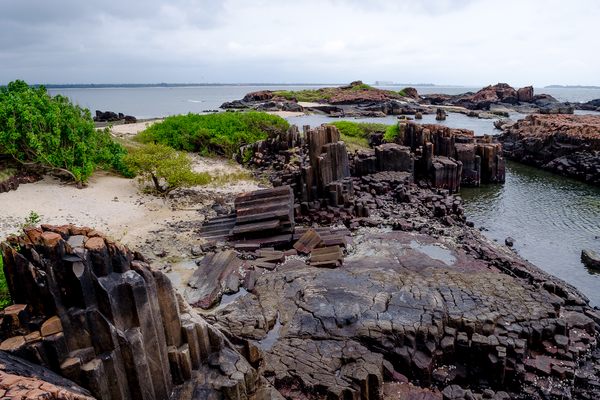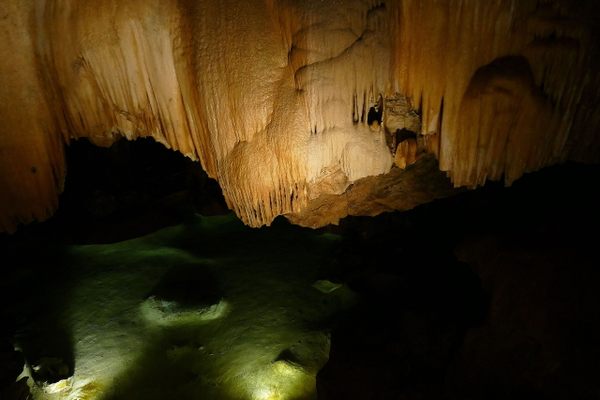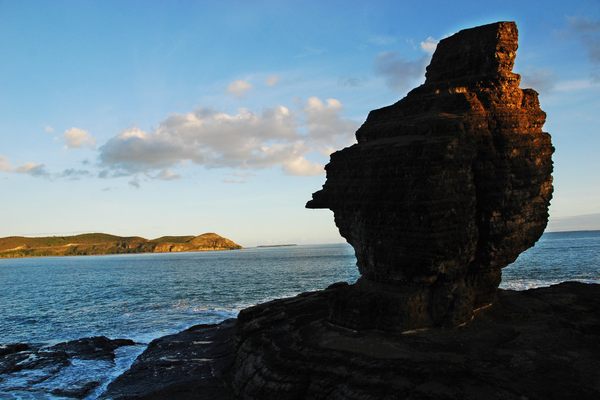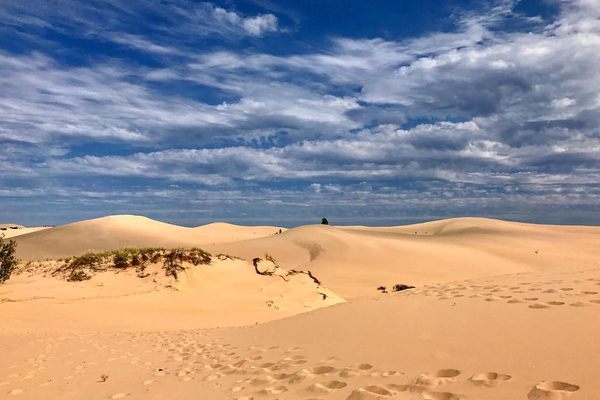About
The city of Itoigawa, Niigata Prefecture, has been known for its high-quality jade for centuries. In fact, it's considered one of the oldest jade-producing areas and its jade has been used since the prehistoric Jōmon period, long before the Olmec and Maya cultures. Even today, it remains the most notable location in Japan where jade can be found.
This is believed to be due to the city's geological position, where the Fossa Magna and the Itoigawa-Shizuoka Tectonic Line meet. A plethora of minerals formed 20 to 500 million years ago were brought from the mountain ranges in the east, carried by such rivers as the Himekawa. As a result, many of these stones ended up on the coast of Itoigawa, often smoothed over by the current.
Nicknamed the Jade Coast, or Hisui Kaigan in Japanese, this coastline consists of pebbly beaches where rare minerals such as jadeite and nephrite can be found. While it is strictly prohibited to pick jade in the Kotakigawa Jade Gorge, it is allowed on the Jade Coast. Up until the end of the 20th century, jade was so common on these beaches that the locals picked only high-quality specimens and returned the rest to the sea. It can be more difficult to find them today, but half a dozen (give or take) jade pebbles may be collected if one spends the whole day searching for them.
In 1994, the Fossa Magna Museum opened not very far from one of the beaches. Many specimens from Itoigawa are exhibited here, including many pieces of raw jadeite from the Jade Coast. The Museum also offers a free service of identification and authentication of minerals found on the Jade Coast, so be sure to check it out if you wish to find out whether your jade is jadeite or nephrite.
Related Tags
Know Before You Go
The Jade Coast proper is split into three beaches. While the most notable of these is the Itoigawa Beach (also known as the Jade Coast), which is 25 minutes by walk from Itoigawa Station, you can also find jade on the Oyashirazu and Ichiburi Beaches.
There is a 10-minute bus ride from Itoigawa Station to the Fossa Magna Museum. At the museum visitors can also experience a fossil excavation for 300 yen.
Hidden Japan: Sado Island, Nara & Kyoto
Explore a different side of Japan.
Book NowCommunity Contributors
Added By
Published
September 18, 2020
